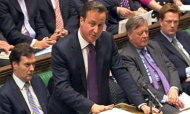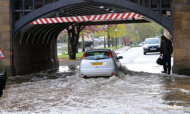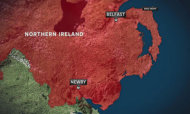David Cameron insisted today that he had seen no evidence that Culture Secretary Jeremy Hunt has breached the ministerial code of conduct in his handling of News Corp's bid for BSkyB.
In an emergency Commons statement, the Prime Minister said he was not going to set up a "parallel inquiry" into Lord Justice Leveson's inquiry into media standards.
But he said that if evidence of a breach of the code emerged when Mr Hunt appeared before the Leveson inquiry, he would refer the matter to his independent adviser on ministerial interests, Sir Alex Allan, or take action himself.
Mr Cameron was forced to go to the Commons to face MPs' questions after Commons Speaker John Bercow awarded Labour an urgent question.
He strongly defended the way Mr Hunt had handled the takeover bid for BSkyB by Rupert Murdoch's News Corp empire.
He said that at every stage of the bid, Mr Hunt had sought independent advice, even though he was not required to do so.
"He acted fairly and impartially and in line with the advice of his permanent secretary," Mr Cameron said.
"I have seen no evidence to suggest that, in handling this issue, the Secretary of State acted at any stage in a way that was contrary to the ministerial code," he said.
Mr Cameron said he had consulted Cabinet Secretary Sir Jeremy Heywood and decided it was right to allow Lord Justice Leveson to conduct his inquiry and not to set a "parallel process" to establish the facts.
"What we have is a judge-led inquiry, witnesses required to give evidence on oath, full access to papers and records, cross-examination by barristers, all live on television," he said.
"There is nothing this tough or this rigorous the Civil Service or the independent adviser could provide."
Mr Cameron said on Sunday that Mr Hunt could face an investigation over his relations with Rupert Murdoch's News Corporation as it was bidding for full control of broadcaster BSkyB, owner of Sky News.
But any probe would only come after he has given evidence to the Leveson Inquiry into media standards and ethics, he said.
Ed Miliband responded to Mr Cameron today by maintaining that Mr Hunt had "clearly breached the ministerial code" and the Prime Minister did not need to wait for Leveson.
The Labour leader said Mr Cameron was "weak and wrong" and was failing in his duty by not acting to sack Mr Hunt.
Labour called for the Prime Minister to answer questions before Parliament went into recess on Tuesday until the State Opening of Parliament on May 9. Local elections are to take place on Thursday.
Sky's deputy political editor Joey Jones said: "I would imagine on the Government side there would be a degree of frustration that the Speaker has granted this urgent question given that Jeremy Huntdid make a statement, quite a detailed statement, and took a lot of questions last week.
"But plainly the speaker feels there is information out there that needs to be dealt with on the Government side."
Mr Hunt is due to face Lord Justice Leveson in mid-May to discuss relations between politicians and the media.
On Sunday, Mr Cameron said: "If evidence comes out through this exhaustive inquiry where you're giving evidence under oath - if he did breach the ministerial code, then clearly that's a different issue and I would act."

















